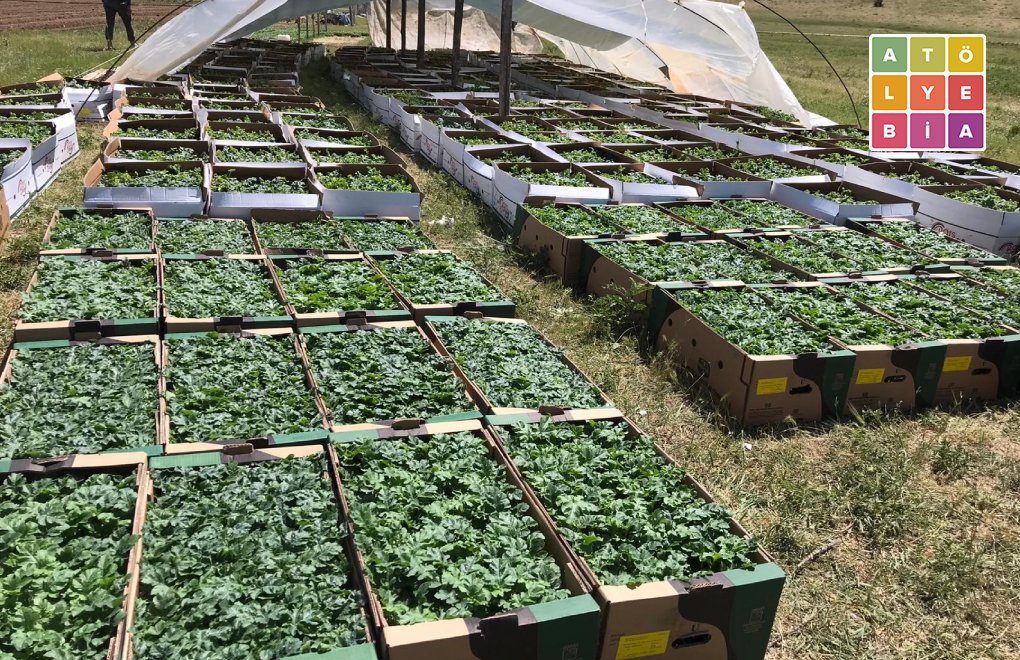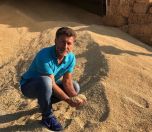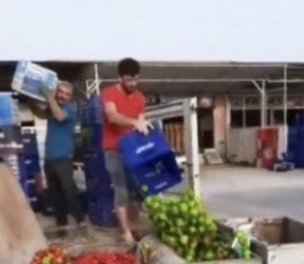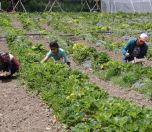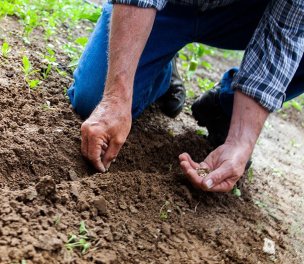Click to read the article in Turkish
Cemil Yükler of Diyarbakır is a member of a family that has been cultivating watermelons for three generations. However, he cultivates watermelons in the neighboring city of Muş as it's harder to find empty fields and economic conditions are more difficult in Diyarbakır.
The watermelon migration
"In Diyarbakır, almost everyone does that business. There is an environment of constant competition. It's hard to find empty fields and field prices are high," says Yükler, 55, a father of four children.
"The economic conditions of Diyarbakır were challenging. After the drought problem was added, it has become pretty difficult to do this job there. You know, watermelon is a fruit that always wants water. The drought in the Southeastern Anatolia region did not offer the appropriate environment for this job.
"As a solution, we thought that doing this business in various provinces in the Eastern Anatolia region would be better and we have been doing the work this way for more than half a century.
"People are mostly engaged in animal husbandry in Muş and surrounding areas. Most of the fields are left empty after the grass is cut. So, we tried to gain an advantage by converting the Diyarbakır watermelon to Muş watermelon."
From organic cultivation to hybrid seeds
The demands of the companies that buy watermelon are "killing organic agriculture," says Yükler, adding that the "aesthetic perception imposed by the society" also has an adverse impact on watermelon production.
"They want fully green watermelons from us but in the end, the part of watermelons that touches the soil becomes whitish. The consumers don't want to buy such ones, so we are forced to cultivate watermelons according to demand.
"Three, four years ago, we were procuring our own seeds, now we have to plant pumpkin-watermelon hybrid seedlings that we buy from companies. This hybrid seed prevents the watermelon from being too sweet. Companies want us to do this. We had to go from the organic agriculture era to the imported seed era.
"A few years ago, the pesticides we used for watermelon seedlings would take effect after one dose. Nowadays, pesticide companies have formed a system that forces us to buy the pesticide three times in a season by lowering the amount of the active substances."
No state support
They create jobs in the villages where they do cultivation, Yüksel says.
"My children are also students and they have a lot of expenses. My son, who is a university student, attends online classes at night and works with us during the day.
"We provide jobs for children so that they can cover their education expenses. While we think and worry about students where we go, we see that there is no one who cares about us. The state doesn't provide support for us in any way.
"This is not the case for watermelon cultivators in Adana but when it comes to us, those who work in the Eastern Anatolia region, we again see that we are not cared about.
"Look, I'm not lying, all our products were destroyed in the hail last year. We went to the provincial and district directorate of agriculture but the only thing they told us was, 'We can't help you because you haven't insured the fields ... If we could afford insurance, we would have our own land." (MG/SO/VK)





